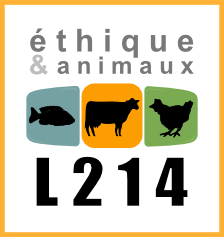Celebrity Chef Announces Strict Animal-Welfare Policy
Article publié le 22 mars 2007 dans le quotidien New York Times.
Par Kim Severson
Wolfgang Puck, the Los Angeles chef whose culinary empire ranges from celebrity dinners at Spago to a line of canned soups, said yesterday that he would use eggs and meat only from animals raised under strict humane standards.
With the announcement, Mr. Puck has joined a small group of top chefs around the country who refuse to serve foie gras, the fattened liver of ducks and geese. But Mr. Puck, working with the Humane Society of the United States, has taken his interest in animal welfare beyond ducks.
He has directed his three companies, which together fed more than 10 million people in 2006, to buy eggs only from chickens not confined to small cages. Veal and pork will come from farms where animals are not confined in crates, and poultry meat will be bought from farmers using animal welfare standards higher than those put forth by the nation's largest chicken and turkey producers. Mr. Puck has also vowed to use only seafood whose harvest does not endanger the environment or deplete stocks.
"We decided about three months ago to be really much more socially responsible,"
he said in a telephone interview from Los Angeles. "We feel the quality of the food is better, and our conscience feels better."
Many chefs at high-end restaurants, some smaller food-service chains and grocery chains like Whole Foods have refused to buy meat and eggs unless animals are raised under certain conditions. In 2000, McDonald's became the first American food company to impose minimum animal-welfare standards, like increasing cage size, on its egg producers. But Mr. Puck's program goes much further than most corporate animal-welfare policies, and he is the flashiest culinary name yet to join with animal rights groups in the movement to change farming practices.
Mr. Puck's ventures include 14 fine-dining restaurants mostly on the West Coast. The flagship is Spago in Los Angeles, which helped him become the nation's first celebrity chef. He also runs more than 80 Gourmet Express restaurants, many of which are in airports, and sells frozen pizza, soups, kitchen cookware and cookbooks. Mr. Puck estimated his companies' value at $360 million.
Since 2002, at least one animal-rights activist group has tried to persuade Mr. Puck to stop using foie gras from ducks that are force fed extra amounts of grain to fatten their livers and veal from calves chained to small crates and fed a liquid diet to keep their flesh white and tender.
The group, Farm Sanctuary, protested in front of Spago and started a Web site called wolfgangpuckcruelty.org, which has since been taken down. Mr. Puck dismissed those efforts and said he decided to make the change as a result of a few trips to large-scale farms, discussions with the Humane Society and a desire to mark his 25 years in the business with something more significant than the kinds of big parties he is used to holding for the Oscars.
"I have been telling people we have to stand for something for the next 25 years,"
he said. "It's time for us to make a statement and a time for us to see how we treat what we eat."
Mr. Puck said prices would increase only a few percentage points on some items.
As many as 98 percent of eggs come from chickens kept in banks of small cages to facilitate mass production, said Diane Storey, a spokeswoman for United Egg, which represents most major egg producers. She and Richard Lobb, a spokesman for the National Chicken Council, which represents major producers of chickens for meat, said their groups had science-based animal welfare certification programs that used humane and ethical guidelines.
"We applaud the fact that he sells a whole lot of chickens,"
Mr. Lobb said. "But we think our program is very progressive and he should look at ours before he goes off with the Humane Society."


